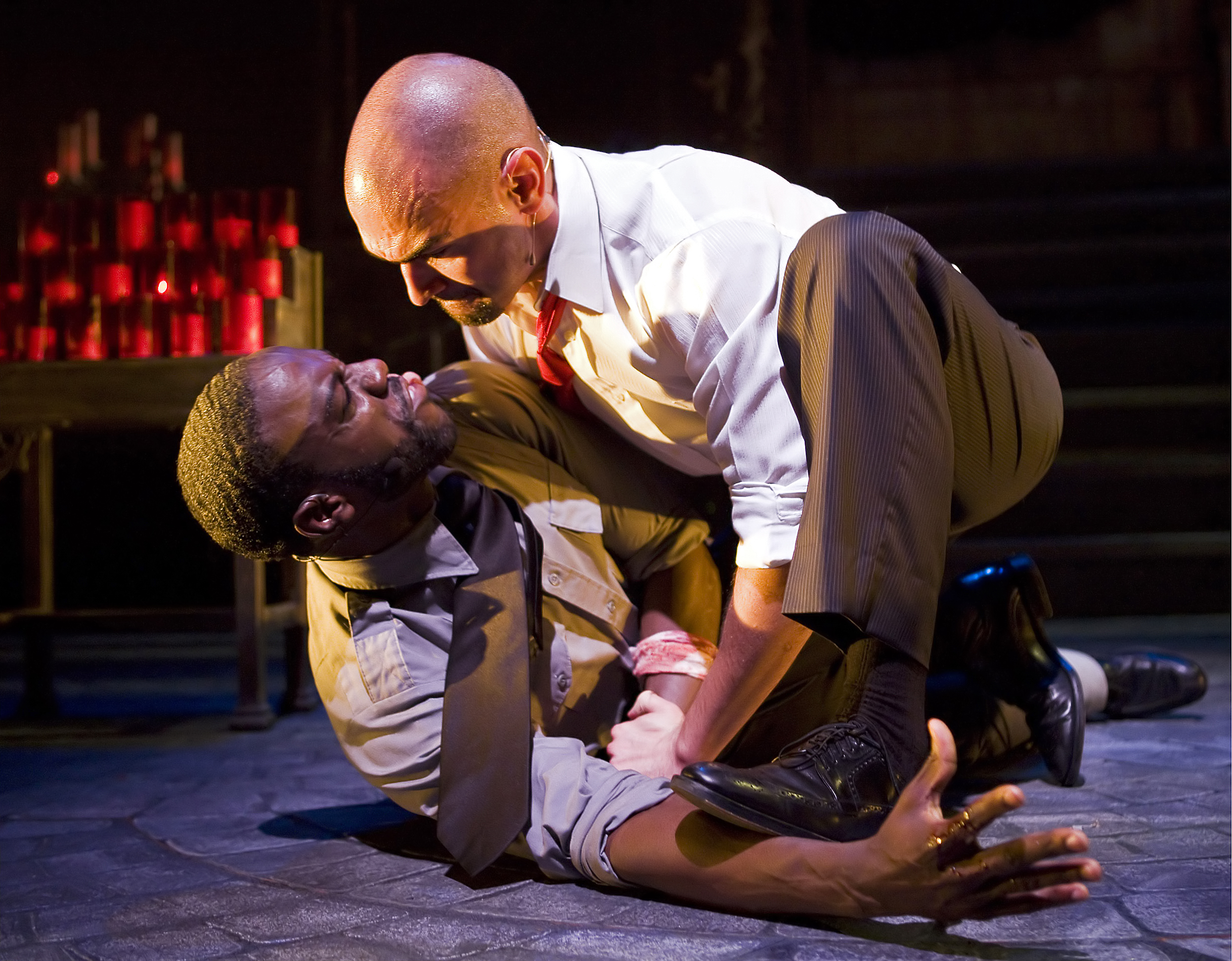Staying power, the ability to perform at the same intensity level for a sustained amount of time, is vital for success in any circumstance ““ in the business world, on the soccer pitch or on stage.
It is a principle of strength through endurance and constancy.
Center Theatre Group’s latest musical theater production, “Venice,” lacks staying power.
The show, a post-apocalyptic tragedy inspired by “Othello,” throws the audience into a high-tech hip-hopera teeming with solid beats, catchy lyrical hooks and groundbreaking stage presence. CTG bills “Venice” as “an explosive new musical,” and in many respects, the play merits this title.
The first act is the theatrical equivalent of an air strike. The second act is more like a gang of schoolboys lobbing firecrackers into public restrooms.
The opening number sets the stage: Venice is a war-ravaged city-state on the brink of change. Two brothers, Venice and Markos Monroe, vie for political and military power.
The workings of a great tragedy form as the audience discovers that the Disappeared, an exiled group of social elites, are returning to Venice, bringing with them the hope of peace but also jealousy as a wedding between Venice and Willow Turner, the female lead, is planned.
The following hour of music is riveting and radio-ready with its infectious rhythms, smart rap lyrics and soulful crooning.
An intricate system of live cameras, projectors and traditional stage lights creates a set with much more depth than the otherwise Spartan design. The themes are new and troubling.
The MC, portrayed by play co-creator Matt Sax, invites the audience to contemplate the central theme that the end of war is not the same thing as peace. “Venice” rises above romantic frivolity and hackneyed power struggles.
Rather, we see that Markos, played by the show’s true standout, Rodrick Covington, charismatically makes an argument for war.
His brother Venice is weak ““ even actor Javier Muñoz’s voice wavers more often than any other sung part ““ and does not command the authority conferred to him.
Moreover, since the union between Venice and Willow seems more rooted in political efficacy than true love, the audience does not oppose Markos’ plot to stop the wedding.
The first act’s penultimate song, “Sunrise,” explores more themes as the entire cast sings out into the Venetian night, just hours before the marriage.
Dual lyrical hooks of “I want to love and be loved” and “I can see the sunrise when I close my eyes” weave in and out of one another, warming the audience in a musical quilt of desire, love, hope and coping with delusional forms of all three.
When the big day arrives, security issues caused by Markos’ plot result in an explosion, a flash of light and a cliffhanger close to the first act.
Fifteen minutes later, the play begins to unravel.
Markos is no longer charming; but unlike a good tragedy in which the villain thrusts himself into madness or hungers voraciously for more power, Markos simply becomes mean and capricious.
Venice is naive but not unreasonable. In act two, he accepts everything that his brother tells him at face value without compelling evidence.
A failure to communicate does wonders for a tragedy: Shakespeare understood this; writers Sax and Eric Rosen do not.
The play’s final chapter ends in a scene of confusingly motivated violence.
As Venice comes to his senses, the MC abruptly ends the story, didactically raps about how this is just a play, and tells the audience to be great for an instant.
The play ends with a revue-style finale in which the cast encourages the audience to stand up and clap to the music. Suddenly, this great, paradigm-shifting hip-hopera rooted in Shakespearean tragedy finishes as little more than the final scene of “Mamma Mia!”
If Venice is a microcosm of the world, and if Venice Monroe is the personification of the troubled city-state, “Venice” does nothing to instill hope for a brighter tomorrow.
Venice, as a symbol of change, gives way to “Venice,” the symbol of piecemeal volunteerism, unconvincing romance, unequal information, human weakness and above all, inconstancy.
E-mail Boden at [email protected].
